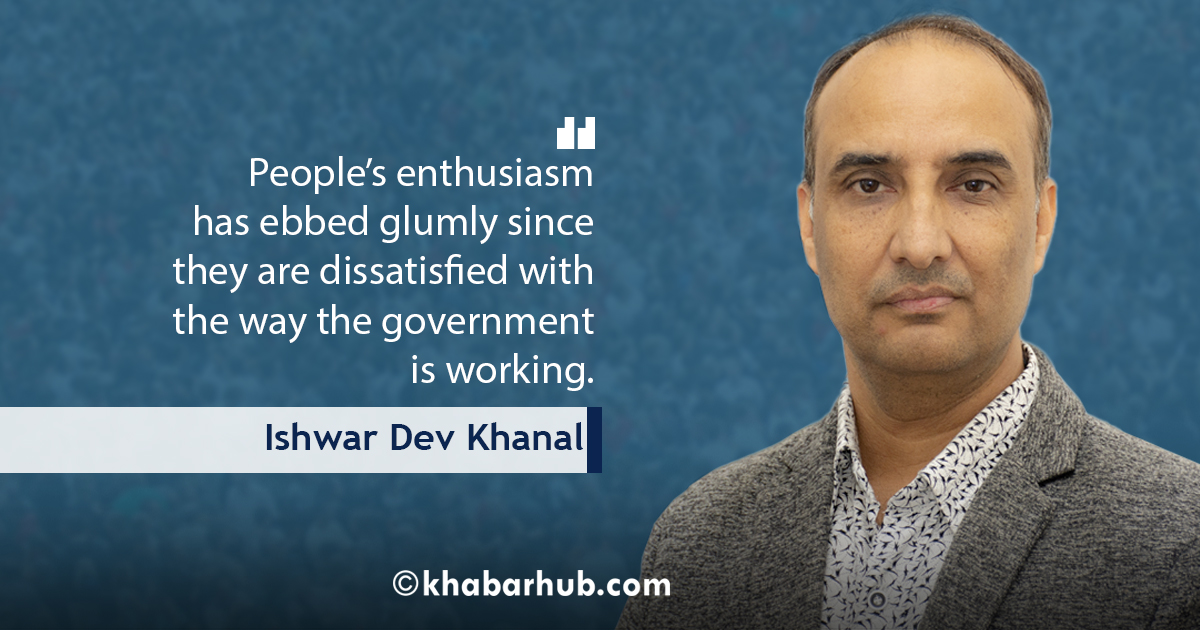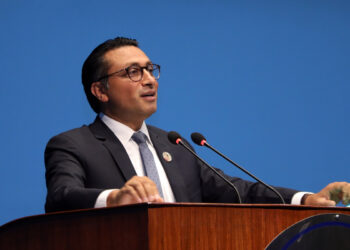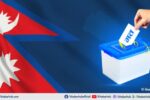People’s mood has been intransigently gloomy for more than a year. To be more precise, people’s aura has diminished in recent months.
Barring a handful of people, Nepalis are frustrated with the government, its leaders, and in general, dissatisfied with the main opposition party – the Nepali Congress — and the direction that the country is heading towards.
People had high hopes with increased optimism that K. P. Oli had heightened during the election campaigns uplifting the national mood in the last general elections. Unfortunately, this is no longer the case now. People’s enthusiasm has ebbed glumly since they are dissatisfied with the way the government is working after the Oli was elected as the Prime Minister. People are largely dissatisfied with the way things are shaping up here in the country. Problems like unemployment, rampant corruption, skyrocketing market price, among others are raging the country. People feel that the country is not heading in the right direction.
Therefore, Nepal desperately needs a competent opposition party. Unfortunately, Nepali Congress, the main opposition, is currently weak and is in shambles.
Public trust in politicians (both ruling and the opposition) has wavered a great deal in the last one year indicating that the gap between political parties and the people have been growing wider day by day. They have started questioning: “Would the incumbent government have performed better had there been a strong and determined opposition?” “Maybe” appears to be the prompt answer.
It is indisputable truth in a democracy that the strong opposition alerts the ruling party for their mistakes and negligence. Without strong opposition in a democracy, the ruling party will not be challenged to improve their performance. Therefore, Nepal desperately needs a competent opposition party. Unfortunately, Nepali Congress, the main opposition, is currently weak and is in shambles.
The citizens of Nepal, meanwhile, are feeling concerned with the performance of the present government. The ruling party through ‘behind the scene’ dealings brokered by the political power brokers, contractors, land mafias’ to accumulate ill-gotten wealth has been manipulating both the people and media. It looks like a ‘controlled democracy’ since the government is usurping more power by curtailing the freedom of media. Policies having a wide-ranging impact are being formulated sans inputs and discussions with the stakeholders. The government is devising programs and policies without taking all the stake leaders into confidence. Citizens views and opinions through social media and via civil society are not being taken in by the present government before devising policies and laws having a long term impact on the future of the country. Doesn’t it contradict the widely appreciative definition of democracy given by Abraham Lincoln as “government of the people, by the people, and for the people?”
A significant aspect is an uninterrupted masquerading on the part of the political leaders and ministers by which they make people (and their supporters) agree with what they say.
The Prime Minister is accused of concentrating more and more powers in his own hands. He seems to be of the view that democracy (Loktantra) may generate tyranny of the majority, which the ruling party also boasts of. However, leaders of the ruling party — the Nepal Communist Party – has been trying to dispel this impression by denying the allegations. Continuation of such practices will lead to put ‘controlled democracy’ in action because the government, as observers argue, is not elected by the people; rather the House of Representatives (several of them winning the costly elections by spending millions) form the government by electing the Prime Minister as their leader based on the number of seats the political parties win.
Moreover, several of the people’s representatives and those in government have influenced the common people with money and favors shown to them in various ways with an intent to tighten their grip on political power. That’s why corruption at the higher level is on a rise since they need more money for the next election. People, who are often dubbed as ‘agents’ have been alleged of lobbying and working for money, via backroom deals.
A significant aspect is an uninterrupted masquerading on the part of the political leaders and ministers by which they make people (and their supporters) agree with what they say. There is a coterie of people in each political party who believes in the willful distortion of facts and prefer to describe Dhobikhola as the country’s cleanest river just to appease their leaders. This proves that reality has, in fact, untethered from the fact, which will have wide-ranging implications in the future course of the country’s politics.
When political leaders’ opinion becomes the only acceptable point of view, it will promote a new form of authoritarianism — not good for the health of democracy, which means that a political leader or a ruler will not voluntarily give up power.
Nepal has faced so many experiments, which have damaged the country in one way or the other.









Comment